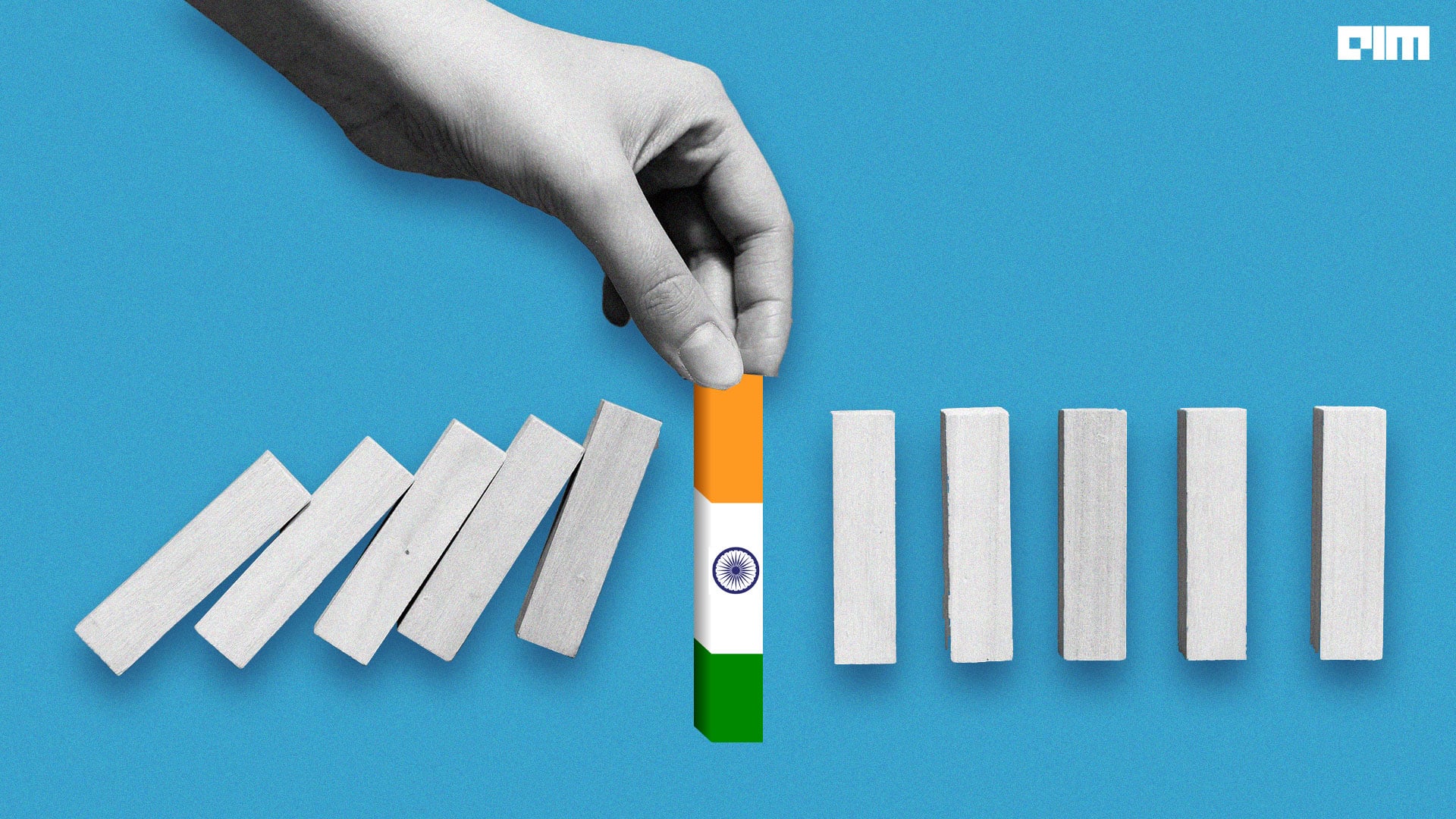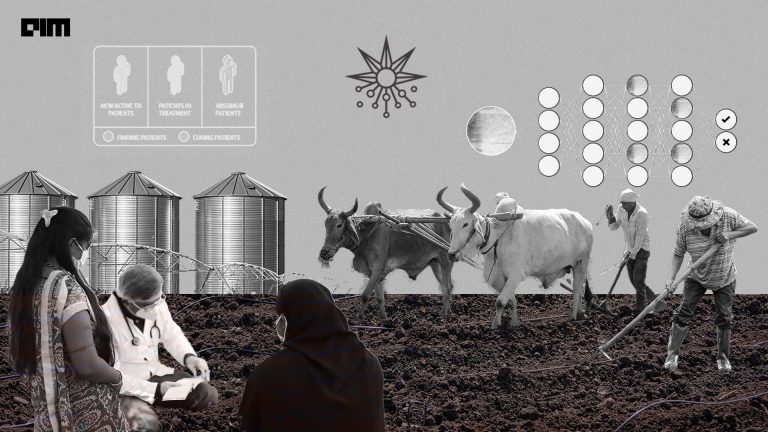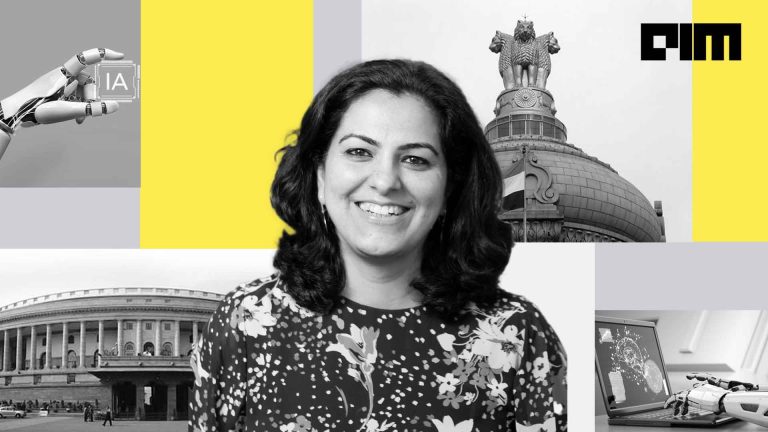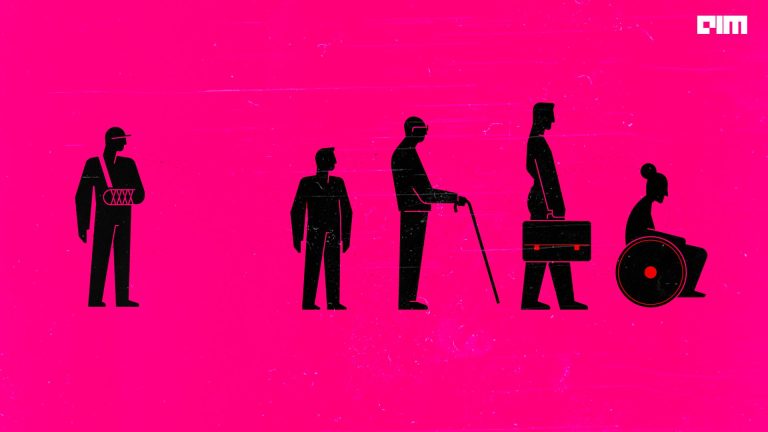|
Listen to this story
|
Not only can AI solve many business problems, but the technology also holds promise for resolving various societal issues.
On his recent visit to India, Microsoft co-founder Bill Gates addressed students of IIT Delhi, encouraging them to use technology like AI for social good. With its diverse array of social issues, India does offer a rich canvas for innovative solutions.
India’s strength lies in its diverse talent pool, encompassing skilled engineers, developers, and technology professionals. Additionally, the country nurtures a vibrant startup ecosystem, fostering a culture of entrepreneurship, further fueling innovation in the technology sector.
“What is encouraging for India is that young entrepreneurs are picking these problems statements and coming up with the skills, a ‘can do’ attitude, and commitment and passion to achieve change,” Sudha Srinivasan, who heads The Nudge Centre for Social Innovation, told AIM.
Over the years, we have seen startups and nonprofits leverage AI to solve problems in agriculture, healthcare and education. India is home to nonprofits like Wadhwani AI, which could possibly be the only nonprofit in the world devoted exclusively to AI for social impact.
AI for social good
“Over the last six to seven years, we have incubated about 130 startups. About 14 of those would be deep-tech startups. Our first AI startup was actually in our very first cohort. They used spectrometry to detect contaminants in water and could make it possible to detect water quality at a tiny price point,” Srinivasan said.
In India, water contamination still remains a daunting challenge. According to a Lancet study, contaminated water led to half a million deaths in 2019.
Another HSR Layout, Bengaluru-based startup Smarterra is using AI to help cities reduce water losses. In India, about 40-50% of water is lost even before it reaches the end customer, according to Smarterra chief scientist Navaneethan Santhanam.
“We help utility companies assess the condition of their network. In any large Indian city, there’s probably 5,000-6,000 km of buried pipes of different materials, sizes, and age. We help them identify which pipes are at the risk of failing,” Santhanam told AIM.
SmartTerra uses generative AI along with modern geospatial analysis, forecasting, and hydraulic modelling to help utilities pinpoint network failures such as leaks, failing pipes, and faulty metres.
The startup operates in many Indian cities and works closely with utility companies such as L&T, Suez, and many state-owned water bodies in India as well as in foreign markets such as Singapore and Philippines.
Moreover, this is a great opportunity to build up India’s human capital through skilling and education and AI could be an enabler for that.
In many areas in India, the student-teacher ratio is still relatively low and there is also the problem of access to education. “With AI you can improve these ratios remarkably. Instead of a teacher teaching 20 students you can have a teacher using AI to teach maybe 100 students without dropping quality,” Srinivasan said.
“The time that goes in assessments too could come down with automation in both spoken and written forms.”
AI is breaking social barriers
AI, or technology in general, has the potential to dismantle numerous social barriers, empowering marginalised communities to access opportunities, resources, and services previously out of reach.
“Think of all the jobs that humans should not be doing, like manual scavenging. If you consider the situation where humans are relegated to jobs with poor dignity, it maintains the status quo, as communities remain bound to such professions due to the lack of alternatives.
“This necessity perpetuates social barriers that limit their mobility beyond these jobs. However, with AI or robotics handling these tasks, individuals in these professions could find a quicker path out of low-paying, low-dignity jobs and transition into better-paying roles,” Srinivasan said.
Today, many startups are building robots or AI-powered solutions to solve the manual scavenging problem in the country. In 2022, interestingly, the Delhi Jal Board (DJB) developed an AI-powered technology to clean sewage water.
Solinas, also incubated by The Nudge, has developed an AI-integrated affordable robotics solution to inspect, clean, and manage confined space for sanitation purposes. It helped clean up manhole blockages and reduced sewer overflows in Madurai.
(Homosep Atom by Solinas)
Moreover, AI is also breaking down accessibility barriers for the disabled in India. I-Stem, a startup co-founded by two visually impaired duo, is leveraging AI to make STEM content more accessible for the visually impaired.
“Over 96% of the content available today is incompatible with various assistive technologies that people with disabilities use. So, chances that a PDF you’re going to find online is going to be accessible is only 4%,” Kartik Sawhney, co-founder at I-STEM told AIM.
( I-Stem awareness session held in Bhopal)
In India, over 70% of the disabled community in India remains unemployed, which is more than the entire population of Sri Lanka, Sawhney said. He believes this is contributing to an annual loss of nearly USD 12 billion to the Indian economy.
“We believe that by assisting these individuals in securing meaningful roles within high-growth industries, they can serve as influential role models. This not only paves the way for their success but also contributes to reshaping the narrative and discourse surrounding disability,” Sawhney said.
Can AI end poverty?
Technology is not just an enabler of scale, but is fundamentally a means to unlock value in a digital economy.
“Eventually, inclusion in the digital economy is key to bringing India’s bottom 20% out of poverty, otherwise it will be on the other side of a digital divide which will further widen the inequalities in our society,” Srinivasan said.
The Nudge runs various programmes like ‘End Ultra Poverty’ and ‘Asha Kiran’ is working towards providing marginalised communities in rural India with sustainable livelihood and elevating them from poverty.
However, over some time, The Nudge has started working closely with technology startups and leverage their technological know-how and expertise to advance its mission.
For instance, Pune-based startup Tapasya, which is part of the Nudge incubation programme, believes ensuring access to government benefits is crucial for poverty alleviation.
However, many underprivileged families lack awareness and know-how to access these schemes. To address this, the startup leverages technology like data analytics to identify eligible families and assist them in accessing the benefits efficiently, enabling last-mile reach.
Additionally, Indian entrepreneurs are also creating employment opportunities in rural India with AI. Karya, a non-profit from Bengaluru is using crowdsourcing to bring dignified, digital work to the economically disadvantaged Indians, giving them a pathway out of poverty.
The boom in AI has also created the demand for huge amounts of data, especially in Indian languages, which are not found on the web. Karya enables tasks like capturing, labelling and annotating data for corporate clients and in doing so provides a minimum wage, which is 20 times higher than the minimum wage in India.
Today, Karya has a presence in 22 states (100+ districts) with over 30,000 workers, who have completed 30 million paid digital tasks.



















































































